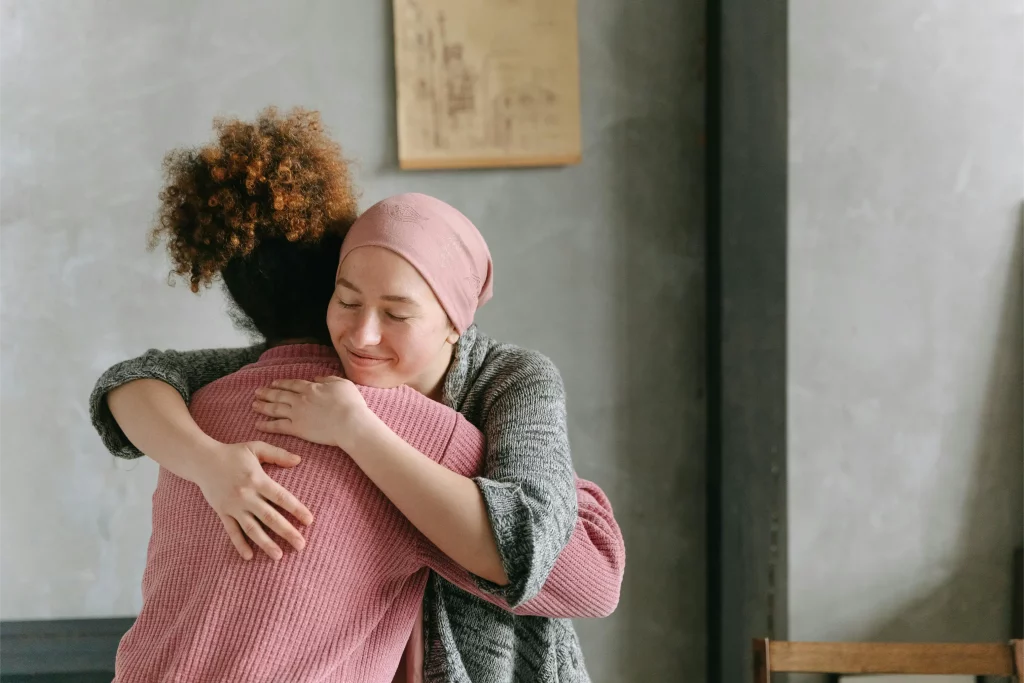
- Creating a serene environment with music and comforting scents promotes calmness.
- Open communication fosters understanding and validation of the dying person’s feelings.
- Providing physical comfort through gentle touch and effective pain management is crucial.
- Practicing active listening and expressing unconditional love offer emotional support.
- Nurturing spiritual well-being through prayer, meditation, and chaplaincy services provides solace.
Facing the impending loss of a loved one is undoubtedly one of life’s most challenging experiences. During such times, emotional support becomes paramount, not only for the one departing but also for those left behind. While we often focus on medical care for the terminally ill, the importance of emotional comfort can’t be overstated. In this article, we’ll explore various ways to provide solace and support to a dying loved one, helping them find peace in their final days and offering comfort to their families.
Creating a Peaceful Environment
Establishing Tranquility in Surroundings
Creating a serene environment is essential for both the dying person and their loved ones. Simple gestures like playing soft music or dimming lights can help in easing anxiety and promote a sense of calm. Additionally, surrounding the person with familiar objects like photos or comforting scents can evoke positive memories and provide reassurance.
Music Therapy
Music has a profound effect on our emotions and can be incredibly comforting for someone facing the end of life. Compile a playlist of their favorite songs or soothing melodies to play softly in the background. Music can serve as a source of nostalgia, joy, and even spiritual connection, offering solace during difficult times.

Aromatherapy
Certain scents have the power to evoke memories and soothe the mind. Consider using essential oils like lavender or chamomile, known for their calming properties, to create a peaceful atmosphere. Diffusers or scented candles can gently infuse the room with these comforting fragrances, promoting relaxation and emotional well-being.
Encouraging Open Communication

Facilitating Meaningful Conversations
Encouraging open communication allows the dying person to express their thoughts, fears, and wishes, fostering a sense of emotional release and understanding. Providing a safe space for them to share their feelings can offer immense comfort and validation in their final days.
Reminiscing Together
Take the time to reminisce about shared experiences and cherished memories. Reminiscing can bring comfort and joy to both the dying person and their loved ones, reaffirming the significance of their bond and the impact they’ve had on each other’s lives.
Discussing End-of-Life Preferences
Having honest conversations about end-of-life preferences can alleviate anxiety and uncertainty for both the dying person and their family members. Discussing topics like advance directives, funeral arrangements, and final wishes ensures that their desires are respected and honored, providing a sense of control and peace of mind.
Offering Physical Comfort
Attending to Physical Needs
Providing comfort in the form of physical care is essential for maintaining the dignity and well-being of the dying person. Addressing their basic needs with compassion and attentiveness can help alleviate discomfort and promote a sense of security.
Gentle Touch and Affection
Simple gestures like holding hands, gentle massages, or applying lotion can provide physical comfort and emotional reassurance. Physical touch communicates love, empathy, and connection, offering solace during moments of pain or distress.
Pain Management
Ensuring effective pain management is crucial for promoting comfort and quality of life in hospice care. Working closely with healthcare professionals to address pain and symptom management can alleviate suffering and enhance the dying person’s overall sense of well-being.
Providing Emotional Support
Practicing Active Listening
Listening attentively to the concerns and emotions of the dying person allows them to feel heard, understood, and validated. Practicing active listening involves being fully present, without judgment, and offering empathy and support.
Validation of Feelings
Acknowledge and validate the range of emotions the dying person may be experiencing, whether it’s fear, sadness, or anger. Validating their feelings creates a sense of acceptance and understanding, fostering emotional connection and comfort.
Expressing Unconditional Love
Expressing love and affection unconditionally can provide immense comfort and reassurance to the dying person. Remind them of the impact they’ve had on your life and the love that surrounds them, offering solace and support during their final journey.
Seeking Spiritual Comfort
Nurturing Spiritual Well-being
For many people facing the end of life, spiritual beliefs and practices provide profound comfort and solace. Nurturing spiritual well-being involves honoring and supporting the dying person’s spiritual beliefs and practices, whatever they may be.
Prayer and Meditation
Engage in prayer or meditation practices that align with the dying person’s spiritual beliefs, providing comfort and connection to something greater than themselves. These practices can offer solace, peace, and a sense of transcendence during difficult times.
Chaplaincy Services
Seeking support from chaplaincy services or spiritual counselors can provide additional comfort and guidance for the dying person and their loved ones. Chaplains offer spiritual care and support tailored to individual beliefs and needs, helping to cultivate a sense of peace and spiritual well-being.
Emotional comfort plays a crucial role in providing solace and support to a dying loved one. By creating a peaceful environment, encouraging open communication, attending to physical needs, providing emotional support, and nurturing spiritual well-being, we can help ease the transition and offer comfort in the final stages of life. As we navigate this challenging journey together, let us embrace compassion, empathy, and love, ensuring that our loved ones find peace and comfort in their final days.
